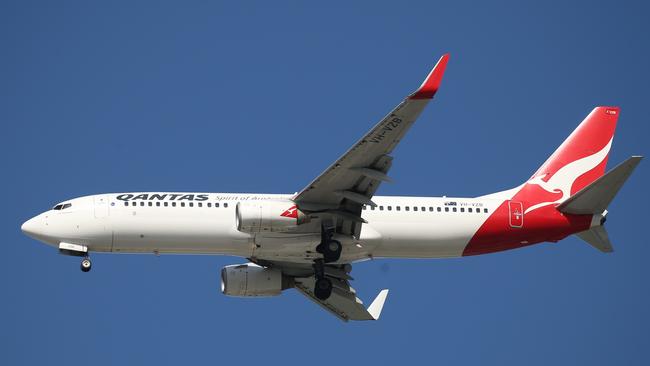Qantas bills police for crime fight
Qantas and Jetstar are charging police almost every time they request information about passengers in probes.

Qantas and its subsidiary Jetstar are charging police and other law-enforcement agencies $50 almost every time they request information about passengers in investigations, from organised crime to routine inquiries.
Investigators have attacked the new policy, which would reap more than $500,000 a year for the airline based on its estimates of more than 10,000 law-enforcement agency requests a year, as penny-pinching and onerous.
Virgin Australia began charging months earlier, with a fee of $30 a time, but its criteria means it will collect on fewer requests than Qantas.
Qantas insists that the fee-charging, quietly rolled out four months ago, is necessary to recover the costs of airline staff responding to police, state-based anti-corruption groups and other agencies tracking certain passengers.
The airline announced record profits last year of $1.53 billion and is expected soon to report full-year underlying profit before tax of about $1.4bn.
“These checks can involve a substantial amount of work searching old passenger records and databases,” a Qantas spokesman said. “Inquiries that could relate to public safety are processed at no cost and usually on the spot.”
Senior police say the airlines’ fee-charging is neither community minded nor compatible with being a good corporate citizen. Investigators are concerned that small businesses and private citizens without the resources or financial scale of Qantas and Virgin will also demand a fee in return for providing statements, CCTV footage and other help sought by agencies.
A senior investigator said a new online portal set up by Qantas to funnel all requests meant confidential intelligence on suspects was transferred to the airline and stored in a single catalogue or database that could be misused.
The airline policies are affecting ongoing investigations. The Australian has been told police are no longer asking the airline for information as frequently because of the red tape and approvals processes that law-enforcement agencies must follow.
Potentially important intelligence in the profiling of suspects in serious investigations is going undetected.
“There is a principle at stake here: is it going to become the norm for businesses to say to police ‘if you want help, pay me, because you pay Qantas for their help?’” a police source said. The $50 fee for each request is not applied when warrants are used, but warrants require significantly more time and effort to produce.
Telecommunications providers including Telstra and Optus have been permitted under legislation to charge agencies for call charge records, which can sometimes involve thousands of entries. Banks and utility companies also have cost-recovery processes, but until this year airlines did not impose a fee.
A memo from April, obtained by The Australian, explains what is described as the new “Qantas Group Security Portal for Law Enforcement Agencies to submit requests for passenger information from the Qantas Group, including Jetstar, QantasLink and JetConnect”.
The memo instructs agencies to “familiarise yourself with the portal as this will be the only method of communicating law-enforcement enquiries. There will be a $50 AUD service charge per request which is payable by credit card. A tax invoice will be emailed to you”.
A Virgin Australia memo advises that a fee will be charged for all requests except where a warrant or notice is issued by a court or it relates to “an emergency regarding the welfare of a child, imminent risk to aviation security or imminent risk to the safety of a person”. Virgin waives the fee if “the investigation pertains to or is initiated by Virgin Airlines”.
The Virgin memo states: “For the purposes of cost recovery investigators will be required to direct all requests for information through that agencies (sic) agreed point of contact to centralise the request process and to allow for an accurate acquittal of costs to the correct divisions of the agency or department. Information requests made outside of this process will not be processed.”
A Qantas spokesman said the group’s airlines receive “more than 10,000 requests from law-enforcement agencies every year, the vast majority of which are background checks on customers as part of ongoing investigations (and) not related to aviation security”.




To join the conversation, please log in. Don't have an account? Register
Join the conversation, you are commenting as Logout